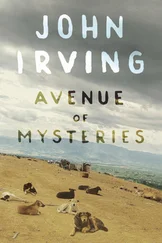Peter Buwalda
Bonita Avenue
“I’m a natural. I know, don’t blow your own trumpet, but that’s just how it is. Judo is a ruthless, cold-blooded sport. I’ve let myself be taken for a ride often enough in life and I’m naïve, but on the mat it’s another story. Then I’m a calculator.”
— WIM RUSKA
“Y’know, I am to you what a gladiator was to the Roman citizen.”
— SASHA GREY
When Joni Sigerius first took Aaron to meet her parents at their converted farmhouse one Sunday afternoon in 1996, her father’s handshake was so firm it hurt. “You took that photo,” the man said. Or was it a question?
Siem Sigerius was a stocky, dark-haired fellow with a pair of ears that you noticed immediately; they were lumpy, they looked deep-fried, and Aaron’s judo past told him they were cauliflower ears. You got them from chafing against coarse cotton sleeves, from letting the flaps get scrunched up between hard bodies and rough mats; blood and pus built up between the cartilage and the babysoft skin. Not doing anything about it meant being stuck with hardened, swollen lumps for good. Aaron had a pair of perfectly normal, unblemished, peachy-soft ears; cauliflower ears were reserved for champions, for the monomaniacs who scraped themselves across a tatami night after night. You had to earn ears like that, man-years had gone into it. There was no doubt in his mind that Joni’s father wore them as a badge of honor, as proof of hard work and manliness. Aaron used to dread coming face-to-face with a similarly ear-marked beast at a tournament; a cauliflower ear on the horizon was bad news, as a competitive judoka he was useless. To hide his awe, he replied: “I take photos all the time.”
Sigerius’s ears quivered. His frizzy hair was close-cropped like felt against his broad, flat head. Despite his wardrobe — suits or corduroy trousers and Ralph Lauren polo shirts, the garb of the employer, the arrivé—you’d never take him, judging from the ears and that buffalo body, for someone who ran a university, let alone believe he was the Netherlands’ greatest mathematician since Luitzen Brouwer. It was a physique you expected to see at a construction site, or on a freeway at night in a fluorescent vest, trudging behind a tar-spreader. “You know full well which photo,” he said.
Joni, her sister, Janis, his wife, Tineke, all of them in the spacious living room knew which photo he meant. It had been printed full-page about a year earlier in the newspaper serving Tubantia University, the small college whose campus was tucked into the woods between Enschede and Hengelo, and where Sigerius was rector magnificus . He was standing on the bank of the Amsterdam-Rhine Canal, wearing nothing but a necktie, legs planted wide in the muddy, trampled grass, his genitals clearly visible under his cautiously rounded fifty-plus belly. The next day the photo had found its way into nearly every national newspaper, from the NRC to De Telegraaf , and ultimately even to the German Bild and a Greek daily.
“I have a hunch,” Aaron conceded, wondering whether Joni had told her father who he was, or if Sigerius simply recognized him: the tall, bald photographer from the Tubantia Weekly who buzzed around the rector during public appearances like a horsefly with a single-lens reflex. The latter option, he thought, was more flattering, just as anyone on campus would feel flattered to be recognized by the charismatic man who at this very moment was crushing his hand to a pulp.
Simon Sigerius was, since his appointment in 1993, the Helios of Tubantia University, a blazing sun around which 8,000 students and hard-working academics orbited in calm little ellipses, surprised yet grateful that he would bathe their campus, of all places, in his warmth, and not the Binnenhof in The Hague, where he had turned down a plum government post, or one of the big American universities that vied for his favor. The first time Aaron had seen Joni’s father was on television several years earlier, when he was still living with his folks in Venlo. The August following his final exams, something possessed him and his brother to become fanatical Zomergasten viewers, and one of those exhilarating, reflective Sunday evening marathon interviews was with a mathematical judoka — or was it a judo-practicing mathematician — anyway, a man whose “ideal TV evening” selection alternated video fragments of judo star Wim Ruska, edgy jazz, the Tokyo 1964 Olympics, and a Dutch comedian with documentaries about prime numbers and Fermat’s Last Theorem. Aaron recalled a clip where a talkative physicist succeeded in giving sworn art majors like him and his brother the impression that they actually understood something of quantum mechanics. (“Richard Feynman,” Sigerius said later. “We’d just buried him.”) The man himself rubbed his stubbly jaw and talked about computers, about the universe, about M.C. Escher, as though anything else was a complete waste of time. It turned out he’d also judoed against Geesink and Ruska, but owed this television appearance mainly to the fact that he’d been awarded a Fields Medal, a distinction the host called the Nobel Prize for mathematics.
Since then Sigerius had grown into the national poster-boy scientist. Their rector would regularly, after a full workday on campus, pull up a seat on the evening news or a talk show and offer scientific commentary on current affairs, dazzlingly intelligent yet at the same time remarkably down-to-earth, never a word of gibberish. As photographer for the Weekly Aaron was front and center when Sigerius set up shop in the university’s administrative wing, and what his camera saw, everybody saw: this was exactly the man Tubantia needed. Just by being himself, Sigerius had liberated this overlooked and underrated university from its Twents timidity and inferiority complex. In his inaugural address he vowed to turn Tubantia into the Netherlands’ premier research institute, a phrase that was broadcast that same day on the national news. He was a media magnet: no sooner had somebody uttered the word “university” than the cauliflower ears appeared on air, and their rector gave, on behalf of their university, his opinion on the competitive position of Dutch research schools, on girls’ technical ability, on the future of the Internet, you name it. Sigerius just as effortlessly attracted top international scholars. Maybe it was a pity that the Fields Medal wasn’t a genuine Nobel Prize, of course that was a pity, but his aura of mathematical genius still mesmerized investors in pure science, dyscalculaic MPs with education portfolios, communications giants and chip manufacturers whose labs sprang up around the university. And perhaps even schoolkids, they too recognized Sigerius’s stubbly mug from TV; don’t forget the precious progeny, each year the little brats had to be lured to that godforsaken hick town in Twente, how do you entice them, how do you hook them?
The pied piper of Tubantia, bare-assed in the daily papers. “Nice work,” he said, and released Aaron’s hand.
He’d taken the photo on a Sunday afternoon in Houten, just after they had finished rowing the Varsity, the traditional student regatta between boats from various universities. Blaauwbroek, the editor-in-chief of the Weekly , had assured Aaron that something special was on the cards: the Tubantia boat had an Olympic skipper on board as well as an oarsman with the Holland 8 Atlanta crew. Still, it was unusual for a university rector to sacrifice his free day to accompany a busload of boozing fratboys all the way to the Amsterdam-Rhine Canal. During the minor events he observed Sigerius out of the corner of his eye; the man stood on the soggy washland grass between the bar and the wooden bleachers, surrounded by a rat pack of hard-core Siemsayers, fawning undergrads who went out of their way to claim the rector as their own. Sigerius appeared to take pleasure in these boys’ company. He had sucked them out of their big townhouses, they came swarming to the campus, hankering after a part-time job at the policy office or with public relations, flattering themselves on being invited to Sigerius’s annual barbecue at his farmhouse. Aaron felt a pang of jealousy. Was the guy acting or genuinely enjoying himself?
Читать дальше












